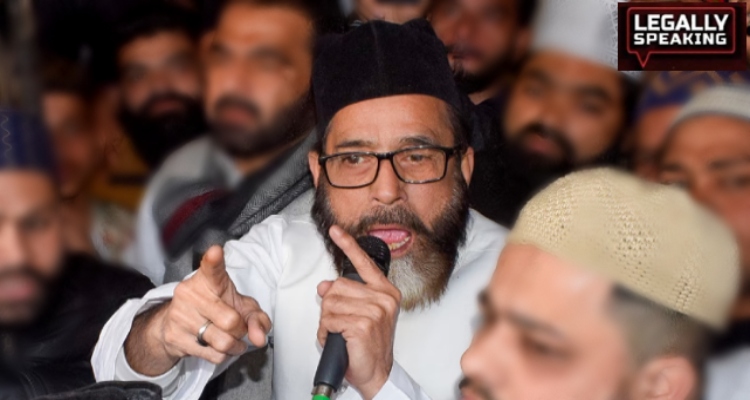
Granting relief to prominent Muslim cleric Maulana Tauqeer Raza Khan, the Supreme Court has issued an interim stay on the execution of the non-bailable warrant issued against him in the 2010 Bareilly communal riots case.
Riots erupted in the Uttar Pradesh town on March 2, 2010, over a religious procession route, resulting in numerous injuries and damage to property.
After considering lawyer Asad Alvi’s submissions on behalf of the cleric, a bench comprising Justices MM Sundresh and SVN Bhatti ordered, “Issue notice limited to the impugned order having been passed without assigning any reason. In the meanwhile, there shall be a stay of the operation of the impugned order.” The top court heard Khan’s appeal against the Allahabad High Court’s March 19 order, which had refused to grant any “indulgence” regarding the warrant.
The High Court’s single judge bench, led by Justice Ram Manohar Narayan Mishra, had initially directed Khan to appear before the trial court by March 27, 2024, to apply for bail, while emphasizing that the non-bailable warrant against him would not be executed until then. The Supreme Court noted Alvi’s arguments that the High Court had issued its order without providing reasons and granted the interim stay.
Initially, the state police had arrested Khan and others but had not filed a chargesheet against him. Subsequently, the local trial court issued summons to Khan on March 5. Referring to Chief Minister Yogi Adityanath as an example, the trial court had remarked that those in positions of power should be religious persons, citing the ‘Philosopher King’ concept from Greek philosopher Plato’s works.
When Khan failed to appear before the trial court on the scheduled date, a non-bailable warrant was issued against him. In response to Khan’s appeal, the Allahabad High Court ordered the removal of remarks, including the reference to the CM, from the trial court’s order, deeming them unwarranted and expressing concern that such expressions could be misinterpreted by the public.
The High Court, however, did not grant Khan the relief he sought regarding the non-bailable warrant. The Uttar Pradesh government informed the High Court that Khan was allegedly the mastermind behind the communal riots and presented sufficient evidence implicating him in the offense.




